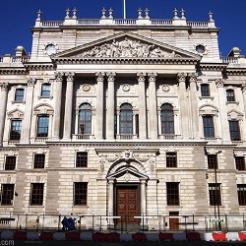The Treasury estimates that the VAT cost-sharing exemption will cost the Exchequer £125m by 2016/17, and anticipates that efficiencies achieved by the sharing of services could save the sector a further £100m.
The figures are contained in the draft legislation on the cost-sharing exemption published by HM Treasury today.
The new clauses in the Finance Bill 2012 have been welcomed by Charity Tax Group and CFDG, which have been campaigning for a VAT cost-sharing exemption for several years. However, they also warned that the challenge remains to ensure that it is implemented in a way that is beneficial to the sector.
Caron Bradshaw, CEO at CFDG, said: “One of the major points we’ve consistently put forward is that the exemption would have very little take-up from charities in the proposed form outlined in the consultation document. This was primarily because of the requirement that the cost-sharing group had to be a separate legal entity, without any one member having majority control - completely unworkable for most charities due to the cost, effort and risks.
“While HMRC is retaining the separate group requirement, we are pleased that they have confirmed in the documents released today that they are relaxing the control condition – now instead allowing one member to have majority control of the cost-sharing group.”
CTG highlighted the government’s estimate that the average annual additional administrative costs, such as filing VAT and corporation tax returns, setting up PAYE and pension schemes, will be in the range of £350,000 to £550,000. It added: “CTG will continue to work closely with officials and sector colleagues to ensure the guidance makes implementation of the exemption accessible for as many charities as possible. If there is not sufficient flexibility in the legislation and through the guidance, many charities will find the additional administrative costs of an independent cost-sharing vehicle as prohibitive as the existing VAT barriers.”
Generally, the new clauses appear to go some way to answering some of the concerns raised by the sector about certain proposals in the original consultation document. According to Graham Elliott, VAT partner at haysmacintyre, there is “no express exclusion of back-office services from the exemption” – a key sector concern at consultation stage.
However, he said the sector would need to see the detail still to come in the secondary legislation yet to be published: “The need for a separate vehicle was expected but still a disappointment and likely to cause restriction of application for smaller charities. However, if the issue concerning who controls the entity is resolved well by the regulations, then that may help smooth that over to a limited extent.”
Treasury: We have responded to sector concerns
The Treasury said: “As a result of responses to the consultation we have adjusted the criteria that must be met in order to establish the necessary independence of the group from its members. This modification is expected to increase the number of businesses and organisations able to benefit from the exemption.”
It also said: “Responses to the consultation document indicated that the model proposed would be of greater use to larger businesses and organisations. Therefore, the model proposed in the consultation document has been revised to make the exemption more usable by smaller-sized businesses and organisations.”
And it went on: "It is anticipated that introducing the exemption could facilitate efficiencies for educational institutions, charities and housing associations, tentatively
estimated at £100m in cost savings for businesses (excluding VAT savings)."
The exemption will help organisations that are currently unable to reclaim the VAT they incur on their purchases that relate to their non-business activities. Under the new exemption, if they co-operate by forming a group to provide them with services “necessary to their exempt/non-business activity” they won’t have to pay VAT on the supply of those services.
However, certain conditions apply - the services must be provided at cost price; the VAT relief must not distort competition, and the services supplied must be “directly necessary” to the activities.
The exemption will benefit all sectors undertaking exempt and/or non-business activities including charities, universities, further education colleges, banks, housing associations and insurance businesses.
The measure will be implemented from the date of Royal Assent to the Finance Bill 2012.









